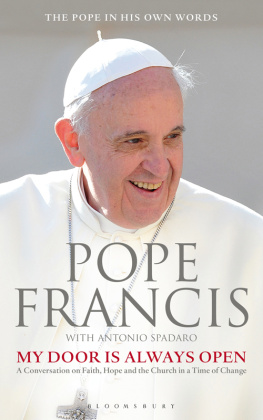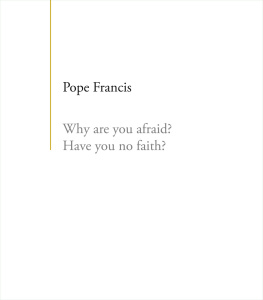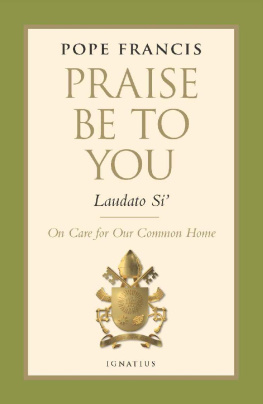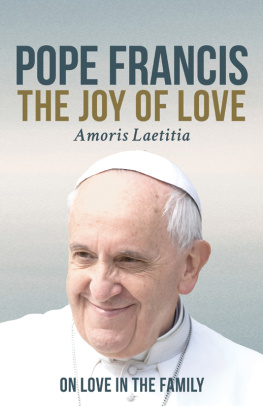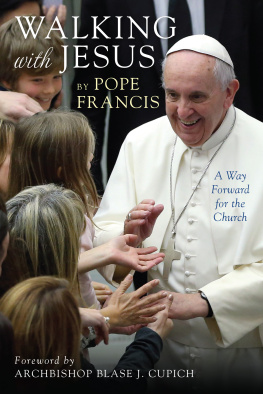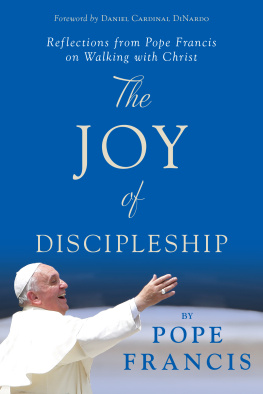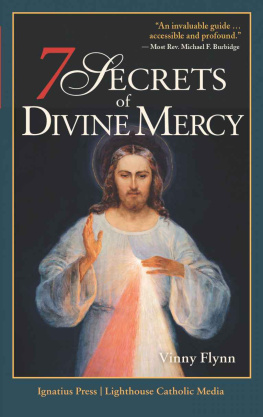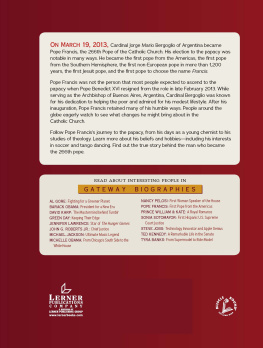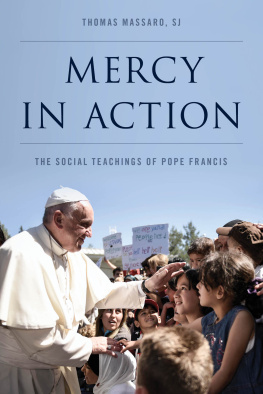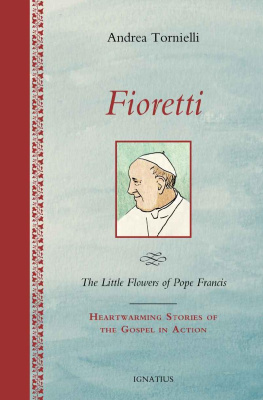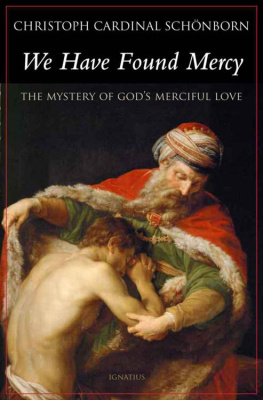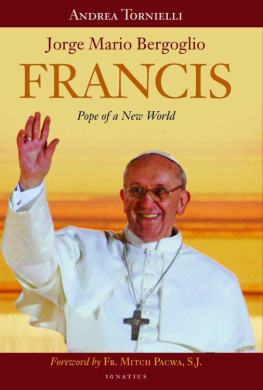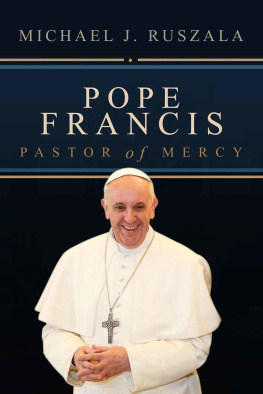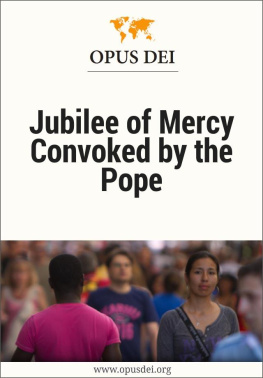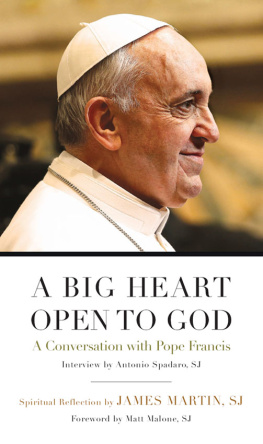All rights reserved.
Published in the United States by Random House, an imprint and division of Penguin Random House LLC, New York.
R ANDOM H OUSE and the H OUSE colophon are registered trademarks of Penguin Random House LLC.
To the Reader
FRANCISS VISION
O N the morning of Sunday, March 17, 2013, Francis celebrated his first Mass after his election as Bishop of Rome, which took place the previous Wednesday evening. The Church of St. Anna in the Vatican, a short walk from the eponymous gateway to the smallest state in the world and the parish church for the inhabitants of Borgo Pio, was packed with worshippers. I was there with some of my friends. On this occasion, Francis delivered his second homily as Pope and spoke off the cuff: The message of Jesus is mercy. For me, and I say this with humility, it is the Lords strongest message.
The Pontiff chose to comment on the excerpt from the Gospel of John that speaks of the adulteress, the woman whom the scribes and Pharisees were about to stone as prescribed by the Law of Moses. Jesus saved her life by calling upon whoever was without sin to cast the first stone. Everyone walked away. Neither do I condemn you. Go, [and] from now on do not sin any more (John 8:11).
Francis, referring to the scribes and Pharisees who had dragged the woman in front of the Nazarene to be stoned, said: Sometimes we, too, like to reproach others, to condemn others. The first and only step required to experience mercy, the Pope added, is to acknowledge that we are in need of mercy. Jesus comes for us, when we recognize that we are sinners. All thats necessary is not to imitate the Pharisee who stood in front of the altar and thanked God for not being a sinner like other men. If we are like that Pharisee, if we think we are righteous, we do not know the Lords heart, and we will never have the joy of feeling this mercy! the new Bishop of Rome explained. Those who are in the habit of judging people from above, who are sure of their own righteousness, who are used to considering themselves just, good, and in the right, dont feel the need to be embraced and forgiven. And there also are those who feel the need but think they are irredeemable because they have done too many bad things.
In this connection, Francis related a dialogue he had had with a man who, on being given this explanation of mercy, had answered: Oh, Father, if you knew my life you wouldnt talk to me like that! I have done some terrible things! This was Franciss reply: Even better! Go to Jesus: he likes to hear about these things. He forgets, he has a special knack for forgetting. He forgets, he kisses you, he embraces you, and he says: Neither do I condemn you. Go, [and] from now on do not sin any more. That is the only advice he gives. If things havent changed in a monthwe go back to the Lord. The Lord never tires of forgiving: never! It is we who tire of asking him for forgiveness. We need to ask for the grace not to get tired of asking for forgiveness, because he never gets tired of forgiving.
From that first homily, which particularly struck me, there emerged the centrality of the message of mercy, which would characterize these first few years of Franciss papacy. They were simple and profound words. This is the face of a Church that doesnt reproach men for their fragility and their wounds but that treats them with the medicine of mercy.
We live in a society that encourages us to discard the habit of recognizing and assuming our responsibilities: It is always others who make mistakes. It is always others who are immoral. Its always someone elses fault, never our own. And sometimes we even experience the return of a kind of clericalism, always intent on building borders, regulating the lives of people through imposed prerequisites and prohibitions that make our daily lives, already difficult, even harder. An attitude of being always ready to condemn and much less willing to accept. Ready to judge but not to bow down with compassion for mankinds sufferings. The message of mercythe heart of that sort of unwritten first encyclical, which was contained in the new Popes brief homilyswept all those stereotypes away.
A LITTLE more than a year later, on April 7, 2014, Francis returned to the same passage during morning Mass at Saint Marthas House, confessing his attachment to this part of the Gospel. God forgives not with a decree but with a caress. And with mercy, Jesus too goes beyond the law and forgives by caressing the wounds of our sins.
Todays Bible readings, the Pope explained, speak to us of adultery, which together with blasphemy and idolatry was considered a grave sin under the Law of Moses and punishable with the penalty of death by stoning. In the excerpt from the eighth chapter of John, the Pope pointed out: We meet Jesus, who was sitting there, surrounded by people, in the role of the catechist, teaching. Then the scribes and Pharisees came to him with a woman, perhaps with her hands tied, we might imagine. Then they brought her to the middle and accused her: here is an adulteress! Theirs is a public accusation. The Gospel says that they asked Jesus a question: What should we do with this woman? You talk to us of goodness, but Moses told us that we must kill her! They said this, Francis observed, to put him to the test, so that they could accuse him of something. In fact, if Jesus had said to them: Go ahead with the stoning, they could then have said to people: You say your master is so good, but look what he has done to this poor woman! If instead Jesus had said, No, the poor woman, we need to forgive her! they could have accused him of not enforcing the law.


